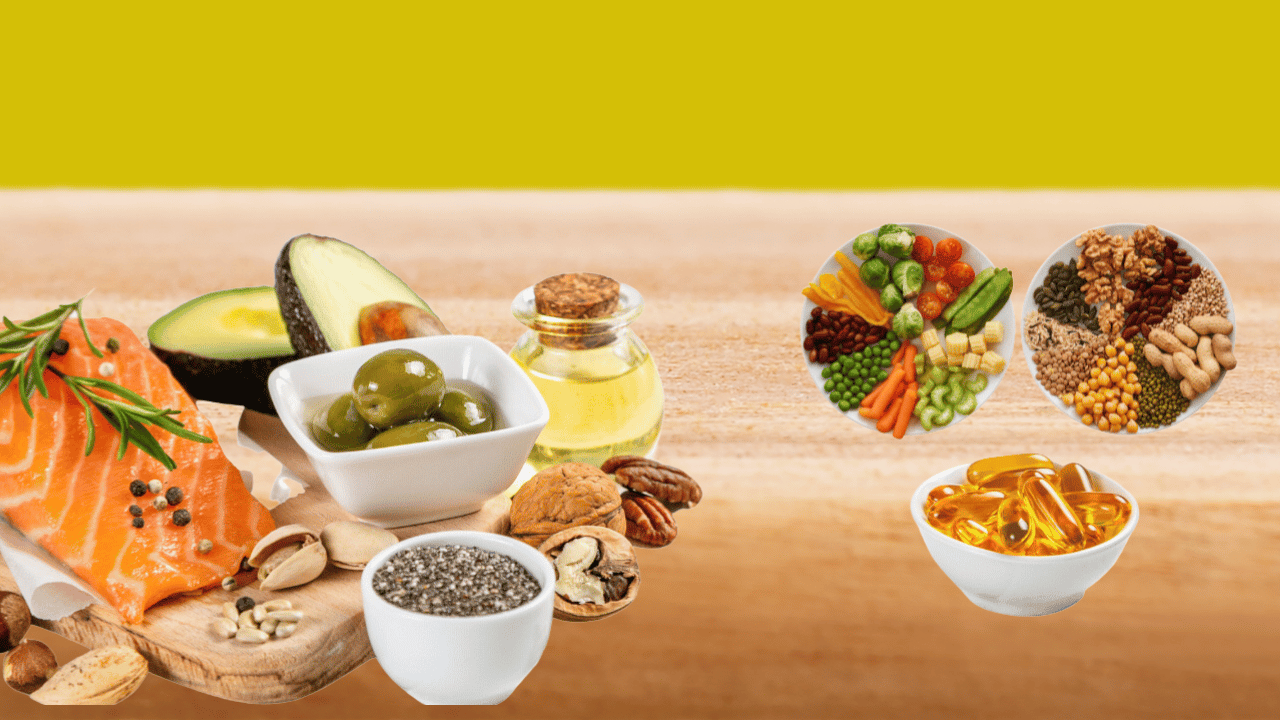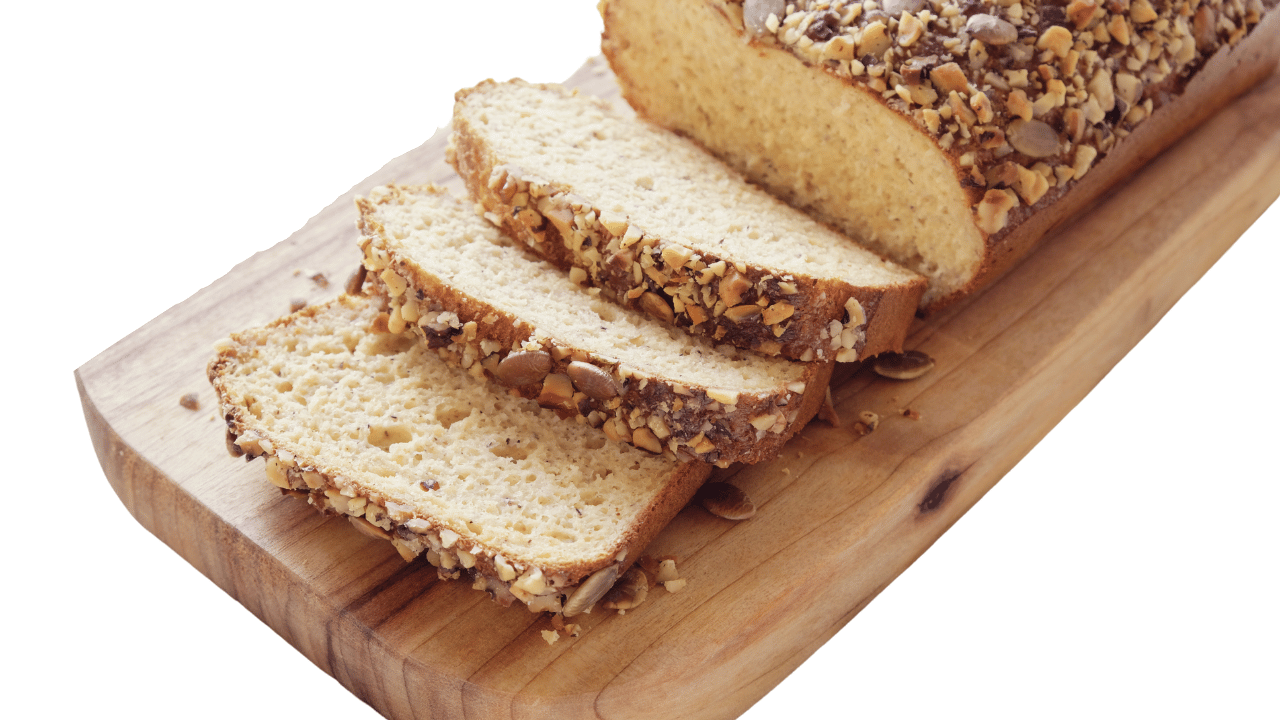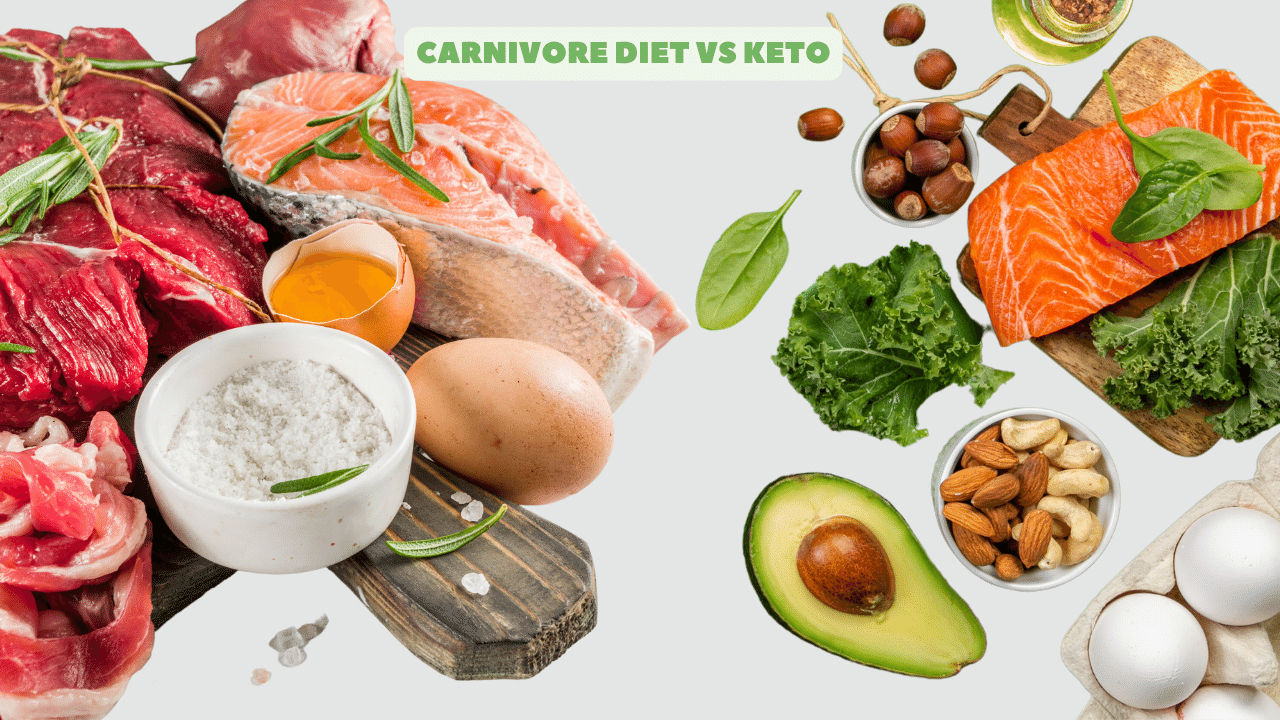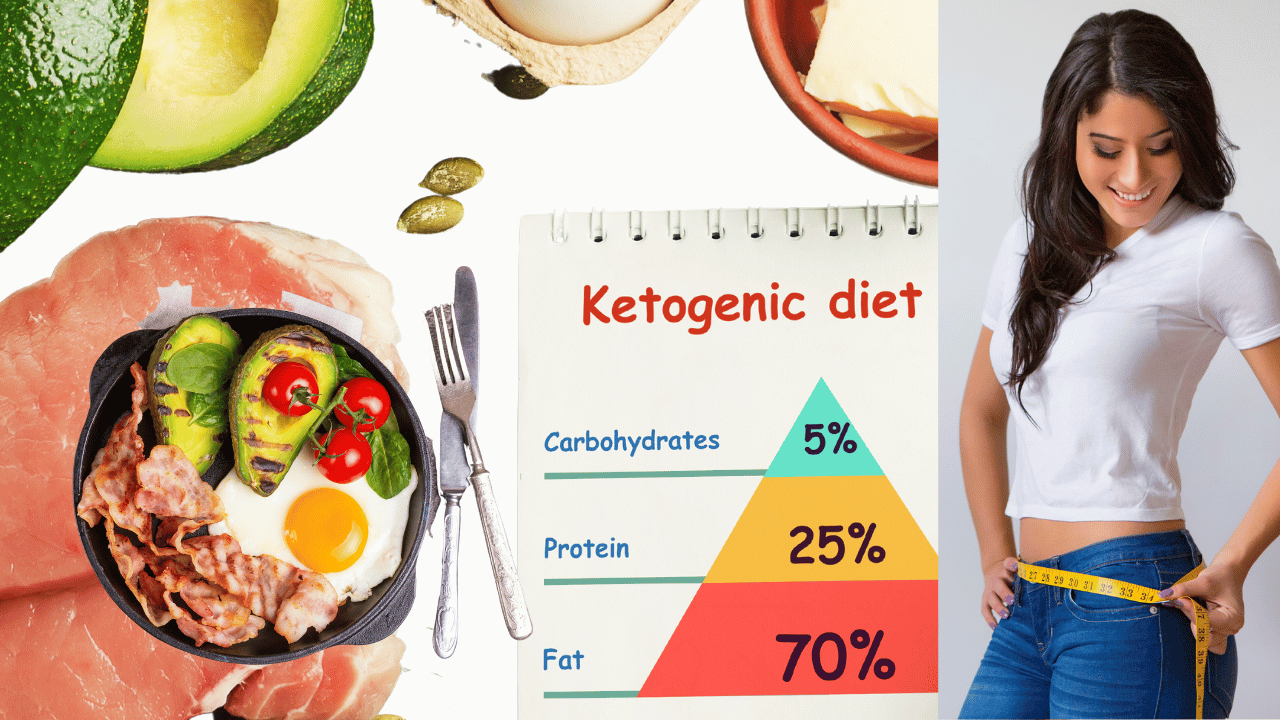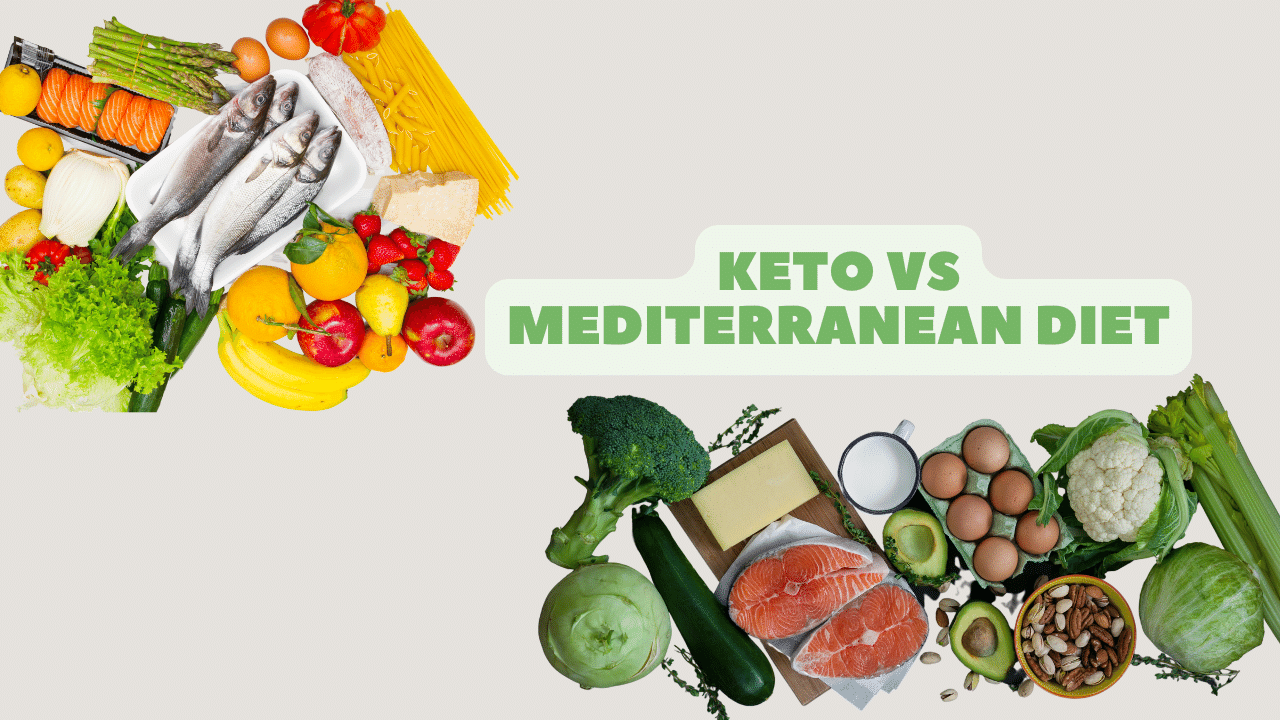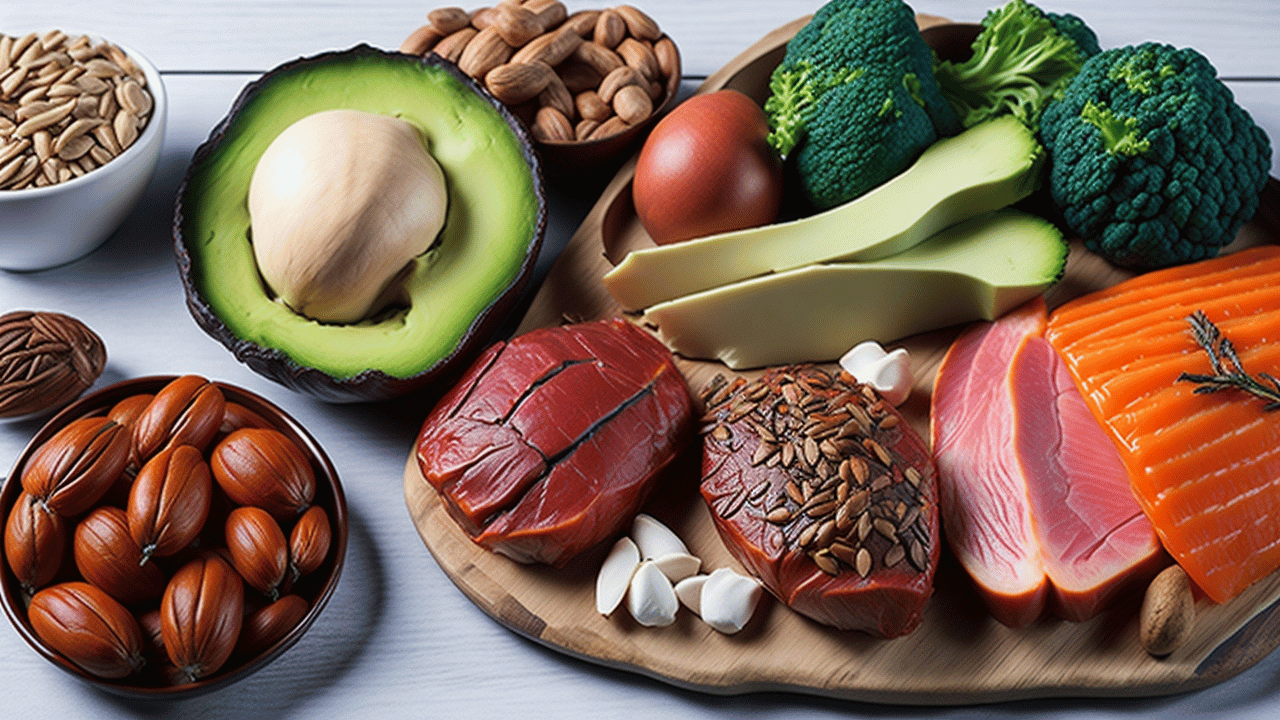The Comprehensive Guide to Nuts in a Keto Diet: Making Informed Choices for Optimal Health and Nutrition. The ketogenic diet, characterized by its low-carb, high-fat approach, has taken the nutrition world by storm for its potential to facilitate weight loss and improve overall health.
Within this dietary landscape, nuts, being a natural repository of healthy fats, protein, and essential nutrients, seamlessly align with keto principles.
In this extensive guide, we delve into the nuanced world of nuts for a keto diet, offering a detailed analysis of their nutritional profiles and elucidating how to effectively integrate them into your personalized keto meal plan.
Understanding the Macronutrient Composition of Nuts
Before we embark on a nutty adventure, it’s imperative to comprehend the intricate macronutrient structure of nuts—a foundational element in crafting a keto-friendly diet:
Fats: Nuts are replete with healthy fats, primarily monounsaturated and polyunsaturated fats. These fats play a pivotal role in achieving and maintaining ketosis, a cornerstone of the ketogenic diet.
Protein: Protein content in nuts is moderate, constituting a vital component for muscle maintenance and growth. Striking the right balance of protein is a crucial aspect of a well-rounded keto regimen.
Carbohydrates: Nuts carry carbohydrates, predominantly in the form of dietary fiber and natural sugars. In the realm of keto, the emphasis is on “net carbs,” calculated by deducting fiber from the total carbohydrates to ascertain its effect on blood sugar levels and ketosis.
Identifying Low-Carb Nuts for Keto
To tailor a keto diet effectively, discerning the nuts with the lowest net carb content is paramount. Here’s a detailed exploration of the finest low-carb nuts, ideally suited for a keto lifestyle:
a. Macadamia Nuts
Net Carbs (per 1 oz/28g): 1.5g
Celebrated for their creamy texture and subtle, buttery taste, macadamia nuts are exceptionally low in carbs and high in healthy fats. This makes them an epitome of choice for keto enthusiasts aiming to minimize carbohydrate intake.
Originating from the macadamia tree, native to Australia, macadamia nuts are a prime example of a nut that aligns harmoniously with the keto macronutrient ratio, which requires a higher fat intake and limited carbohydrates.
Macadamia nuts, owing to their remarkable fat profile and meager carbohydrate content, are highly satiating. Consumption promotes a sense of fullness, assisting in portion control and, consequently, weight management—a significant aspect for those on the keto journey.
The monounsaturated fats prevalent in macadamia nuts, specifically oleic acid, have been associated with various health benefits. Studies suggest potential improvements in heart health, inflammation reduction, and blood sugar management.
Furthermore, macadamia nuts are a source of essential minerals such as manganese, thiamine, and copper. These micronutrients contribute to vital bodily functions and overall well-being.
b. Pecans
Net Carbs (per 1 oz/28g): 1.2g
Pecans, characterized by their sweet, rich flavor, are not only low in net carbs but also offer a significant dose of monounsaturated fats. This makes them an enticing addition to the keto repertoire.
Originating from North America, pecans are the product of the hickory tree, scientifically known as Carya illinoinensis. Their earthy, buttery taste and slightly sweet undertones make them versatile for both sweet and savory keto recipes.
In the realm of keto, where fats form a substantial part of the daily caloric intake, pecans shine brightly. They provide a generous dose of healthy fats, primarily monounsaturated fats, which are conducive to ketosis.
Moreover, pecans are a rich source of various vitamins and minerals, including manganese, thiamine, and zinc. These micronutrients play a pivotal role in metabolism, energy production, and overall immune function.
c. Walnuts
Net Carbs (per 1 oz/28g): 2g
Shaped like a miniature brain and packed with omega-3 fatty acids, walnuts are both nutritious and keto-friendly. Despite a slightly higher net carb content, their health benefits outweigh this consideration.
Walnuts, native to the Balkan region and parts of Asia, are a remarkable nut owing to their unique shape and extraordinary nutritional profile. They are particularly known for their high omega-3 fatty acid content, specifically alpha-linolenic acid (ALA).
In the context of a keto diet, walnuts present an excellent opportunity to diversify fat sources. The predominance of ALA, a plant-based omega-3 fatty acid, enhances the overall fatty acid profile, contributing to heart health and reducing inflammation.
Furthermore, walnuts are rich in antioxidants, including vitamin E, polyphenols, and melatonin. These compounds combat oxidative stress, promoting overall cellular health and potentially reducing the risk of chronic diseases.
d. Brazil Nuts
Net Carbs (per 1 oz/28g): 1.4g
Brazil nuts, known for their high selenium content, stand out as low-carb options, offering a unique flavor profile. They constitute a nutritious addition to a keto diet.
Native to the Amazon rainforest in Brazil, Bolivia, and Peru, Brazil nuts are one of the richest sources of selenium—an essential mineral crucial for various bodily functions. Selenium is a potent antioxidant that supports thyroid health, immune function, and helps combat oxidative stress.
In the keto context, Brazil nuts provide a good balance of fats and protein, aiding in the maintenance of ketosis. The selenium content, combined with their low net carb value, makes them a valuable inclusion in a keto meal plan.
Exploring Other Keto-Friendly Nuts
While the aforementioned nuts are notably low in net carbs, several others can be incorporated into a keto diet within appropriate portions:
a. Almonds
Net Carbs (per 1 oz/28g): 2.7g
Almonds, revered for their versatility and widespread availability, are a keto staple. They offer a favorable macronutrient balance, making them a popular choice among keto enthusiasts.
Almonds, originating from the Middle East and South Asia, have gained international acclaim as a nutrient-dense nut. They boast a robust nutrient profile, providing healthy fats, protein, fiber, vitamins, and minerals.
In the keto realm, almonds contribute to achieving the desired macronutrient ratios, particularly owing to their moderate protein content and healthy fat composition. They also offer a feeling of satiety, aiding in portion control and calorie management.
Additionally, almonds are a notable source of vitamin E, magnesium, and biotin, essential for skin health, muscle function, and overall metabolic activities.
b. Hazelnuts
Net Carbs (per 1 oz/28g): 2g
Hazelnuts, characterized by their rich, slightly sweet flavor and compact, round shape, present a delectable low-carb option for keto adherents. They add a delightful dimension to keto recipes.
Hailing from the temperate regions of Europe and Asia Minor, hazelnuts, also known as filberts, are a favored nut in various culinary applications. Their distinctive taste, often likened to chocolate due to its natural oils, makes them an enticing choice for those on a keto journey.
In the context of the keto diet, hazelnuts offer a well-rounded nutrient profile, providing healthy fats, protein, dietary fiber, vitamins, and minerals. Their relatively low net carb content places them in the “keto-friendly” category, contributing to the daily fat intake crucial for achieving ketosis.
Furthermore, hazelnuts are a rich source of vitamin E, manganese, and copper, vital for antioxidant defense mechanisms and overall metabolic health.
c. Pine Nuts
Net Carbs (per 1 oz/28g): 2.7g
Pine nuts, though slightly higher in net carbs, are an excellent source of healthy fats and can bring a delightful crunch to your keto meals. Their unique flavor profile complements a variety of keto dishes.
Pine nuts, derived from the cones of pine trees, particularly the stone pine, have a rich history and are prevalent in Mediterranean cuisine. They are adored for their buttery, slightly sweet taste and are often utilized in both savory and sweet dishes.
For those adhering to the keto diet, pine nuts present an opportunity to diversify taste and texture. While being slightly higher in net carbs, their nutrient density and culinary versatility make them a valuable addition to the keto pantry.
Moreover, pine nuts are a rich source of essential fatty acids, including pinolenic acid, which may aid in satiety and appetite regulation.
Incorporating Nuts into Your Keto Diet
Now that we’ve explored the top nuts suitable for a keto diet, understanding how to seamlessly incorporate them into your daily meals is essential. Here are some practical strategies:
Snacking: Nuts make for an easy, portable snack. A small handful can provide a satiating energy boost throughout the day, keeping cravings at bay.
Salads and Main Dishes: Sprinkle nuts on salads or incorporate them into keto main dishes to enhance both flavor and nutrition. The crunch and nutty flavor add a delightful dimension to any meal.
Nut Butters: Utilize nut butters as spreads or ingredients in keto-friendly recipes, offering a creamy, nutty taste to various dishes. Almond butter, for instance, can be used to make fat bombs or as a dip for keto snacks.
Baking and Cooking: Replace traditional flour with almond flour or other nut-based flours for baking, allowing you to enjoy keto-approved treats. Experiment with keto bread, muffins, pancakes, and more using nut flours as a base.
Tips for Buying and Storing Nuts
To ensure you get the best quality and taste from your nuts, here are some tips for purchasing and storing them:
Buy in Bulk: Purchasing nuts in bulk can save costs and ensure freshness. However, always buy from reputable sources to guarantee the quality of the nuts.
Check for Rancidity: Nuts, due to their high fat content, can go rancid. Check for signs of spoilage like off smells or flavors before consuming them. Freshness is key to enjoying the full benefits and taste of nuts.
Store Properly: Store nuts in airtight containers in a cool, dry place to preserve their freshness and prevent spoilage. If possible, refrigerate or freeze nuts to extend their shelf life.
Conclusion
In conclusion, nuts are a valuable asset in a keto diet, offering essential fats, protein, and an array of micronutrients. By incorporating a variety of nuts into your keto meal plan, you can enjoy their health benefits while adhering to your carb limits.
Remember to monitor portion sizes and net carb content to sustain ketosis and progress effectively on your keto journey. Nuts can indeed be your keto companion, adding both flavor and nutrition to your ketogenic lifestyle. Happy keto nut exploration!

